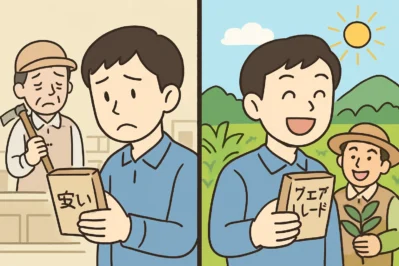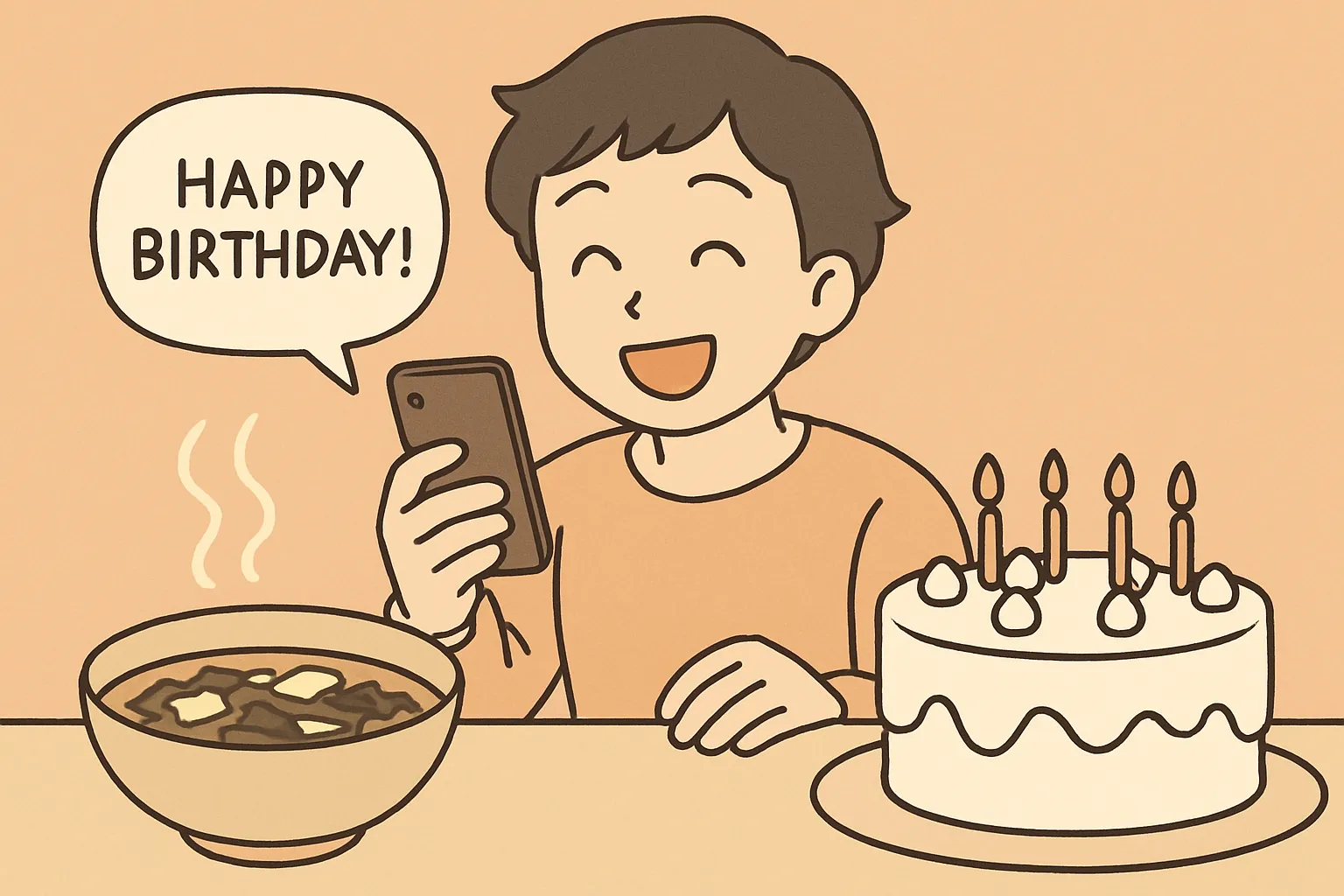Beyond Price: Debating Fair Trade in Korean
Hello! It’s your favorite Korean language booster, Maeil Hangeul, here to upgrade your skills!
Today, we’re diving into a topic that’s perfect for university debates, deep conversations with friends, or understanding complex news articles: Free Trade vs. Fair Trade. This might sound advanced, but with the right vocabulary, you’ll be able to express your opinions like a pro.
Why now? Lately in Korea, there’s a huge movement called ‘가치 소비 (gachi sobi)’ or ‘value consumption’. Especially among younger generations, people are increasingly choosing products based on their ethical, environmental, and social values, not just the price tag. This makes the discussion around fair trade more relevant than ever! Let’s get started.
Core Expressions for Your Debate
Here are some essential phrases you’ll need to navigate this conversation.
1. -에 비해(서) (-e bihae(seo))
- Pronunciation: [e-bi-hae-seo]
- English Meaning: In comparison to… / Compared with…
- Detailed Explanation: This is your go-to grammar point for making direct comparisons. You attach it to a noun to set up a contrast with another noun. It’s used in both spoken and written Korean and adds a sophisticated, analytical tone to your sentences. The
서 (seo)is often omitted in casual speech.
2. 장단점 (jangdanjeom)
- Pronunciation: [jang-dan-jeom]
- English Meaning: Pros and cons / Strengths and weaknesses
- Detailed Explanation: This is a fantastic noun derived from Hanja (Chinese characters). 장 (長) means ‘long’ or ‘strength’, 단 (短) means ‘short’ or ‘weakness’, and 점 (點) means ‘point’. Together, they literally mean “strong points and weak points.” It’s a very common and efficient way to talk about the advantages and disadvantages of something.
3. -(으)ㄴ/는 반면에 (-(eu)n/neun banmyeone)
- Pronunciation: [-(eu)n/neun ban-myeon-e]
- English Meaning: On the other hand / Whereas / While
- Detailed Explanation: This is a key connective phrase for advanced learners. It’s used to present two contrasting facts or ideas in a single sentence. It shows that you understand the complexity of an issue and can see both sides.
- Use -은/는 반면에 after adjectives and
이다/아니다. - Use -는 반면에 after action verbs.
- Use -은/는 반면에 after adjectives and
4. -을/를 고려하다 (eul/reul goryeohada)
- Pronunciation: [eul/reul go-ryeo-ha-da]
- English Meaning: To consider / To take into account
- Detailed Explanation: This verb means to think about something carefully before making a decision. It’s a formal and thoughtful-sounding expression. Using
고려하다shows that you are not just reacting, but are weighing different factors, such as price, quality, and ethical implications.
Example Dialogue
Sujin and Mark, two office workers, are choosing what coffee to buy for their team.
수진 (Sujin): 마크 씨, 우리 팀 커피가 거의 다 떨어졌네요. 새로 주문해야겠어요.
Mark, we’re almost out of coffee for our team. We should order some more.
마크 (Mark): 아, 맞아요. 이번에는 어떤 걸로 살까요? 그냥 늘 마시던 걸로요?
Oh, right. What kind should we get this time? The same one we always drink?
수진 (Sujin): 음… 요즘 제가 가치 소비에 관심이 많아서요. 이번엔 공정 무역(Fair Trade) 커피는 어때요?
Hmm… I’ve been really interested in ‘value consumption’ lately. How about fair trade coffee this time?
마크 (Mark): 좋은 생각이네요! 근데 공정 무역 커피는 일반 커피에 비해 가격이 좀 비싸지 않나요?
That’s a good idea! But isn’t fair trade coffee a bit expensive compared to regular coffee?
수진 (Sujin): 네, 맞아요. 모든 것에는 장단점이 있으니까요. 가격이 비싼 반면에, 개발도상국 생산자에게 정당한 대가를 지불한다는 큰 장점이 있죠.
Yes, that’s true. Everything has its pros and cons. While it’s more expensive, on the other hand, it has the huge advantage of paying fair wages to producers in developing countries.
마크 (Mark): 수진 씨 말을 듣고 보니 그렇네요. 가격뿐만 아니라 윤리적인 측면도 고려해야겠어요. 좋아요, 그걸로 주문하죠!
Hearing you say that makes sense. We should consider the ethical side, not just the price. Okay, let’s order that one!
Culture Tip & Trend Deep Dive: The Rise of ‘가치 소비’
As we saw in the dialogue, 가치 소비 (gachi sobi) is a powerful trend in modern Korea. It’s about spending your money in a way that aligns with your personal beliefs.
- Beyond Coffee: This isn’t just about coffee and chocolate. It extends to many areas:
- Fashion: Young Koreans are increasingly interested in “upcycled” fashion from brands that reuse materials, or they purchase from local designers instead of “fast fashion” giants.
- Cosmetics: The demand for vegan and cruelty-free beauty products is skyrocketing.
- Food: There’s a growing preference for organic ingredients and supporting local farms.
- How to Sound Like a Native: When you’re shopping or discussing products in Korea, try dropping this in: “저는 가격도 중요하지만 가치 소비를 하는 편이에요.” (For me, price is important, but I tend to do ‘value consumption’). This shows you’re not just fluent in the language, but also in tune with current Korean culture!
Let’s Practice!
Time to put your knowledge to the test.
- Fill in the blank:
자유 무역은 소비자가 저렴한 제품을 살 수 있다는 장점이 있는 __________, 생산자 간의 경쟁이 너무 치열해질 수 있어요.
(Free trade has the advantage that consumers can buy cheap products, __________, competition between producers can become too fierce.)- A) 장단점 (jangdanjeom)
- B) 반면에 (banmyeone)
- C) 고려하면 (goryeohamyeon)
- Sentence Making: Using -에 비해(서), write a short sentence in Korean comparing the pros and cons of studying online versus studying in a classroom.
Great job today! You’ve learned some advanced vocabulary and grammar that will allow you to participate in much deeper, more meaningful conversations.
Now, try using one of today’s expressions in the comments! What are the 장단점 (pros and cons) of fair trade, in your opinion? We’d love to hear your thoughts






